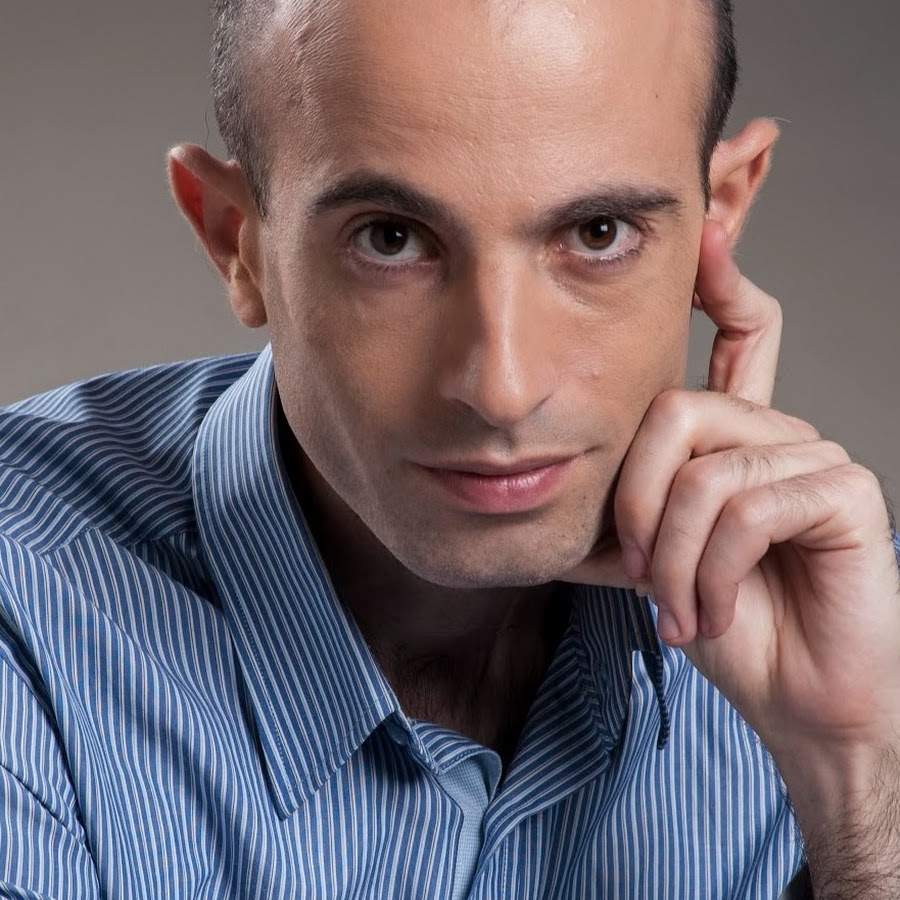
“Some people imagine that nationalism is about hating foreigners, but that’s a complete misunderstanding,” he says. He is a big believer in global co-operation – but in nationalism, too. Harari, a professor in the Department of History at the Hebrew University of Jerusalem, who lives near Tel Aviv with his husband, Itzik, described the coronavirus epidemic at its outset as “a major test of citizenship”. “This will be the change of the coming century: in humans themselves.” That’s why the trans debate “draws such extreme emotional reactions,” he thinks – because “it’s seen as a vanguard of the future, a harbinger of transhumanism.” Transhumanism involves, among other things, the use of technology not just to enhance and elongate human life but to merge man and machine, producing hybrids with physical and mental capabilities way beyond our own.

In terms of anatomy and emotions, we are still basically the same animals we were in the Stone Age.” But biotechnology – the ability to modify one’s body – may disrupt that too in 100 years, we could be unrecognisable. It is now “happening so fast that we are no longer able to really predict anything more than 10 or 20 years in advance.” Historically speaking, “the one thing which hasn’t changed is humanity itself. Indeed it is not change, but the pace of it, that is of greatest concern, he explains. But when it happens we need to create new rules and a new consensus, which is difficult as we need to take into account a lot more voices than before.” The old consensus and rules no longer apply. Every time a new technology comes along and gives more people a voice, the first thing that happens is chaos. But there are positives, points out Harari, who has more than 850,000 followers across Twitter and Instagram.

Much of that is down to the vitriol and tribalism laid plain on social media, platforms he believes can democratise fear and harassment. In that talk, recorded earlier this month, he acknowledges that the pandemic – and the world before it – has become increasingly divided. His annual 60-day silent meditation retreat might have been cancelled due to lockdown, but his workload has otherwise continued at pace: this week sees the release of the second volume of the graphic novel version of Sapiens, alongside the internet broadcast of an interview, Adapting to Change in an Accelerating World, for Cambridge Judge Business School.

Living in one of the world’s vaccine capitals and finding, like many professionals, that the vast majority of his work can be done remotely, the 45-year-old “like to read books and walk by myself in the woods, so some quiet time at home is fine with me.” We will still come to help friends and relatives.” And, more curtly, “If AIDS didn’t kill sex, Covid won’t kill hugging kissing.”Īll of this is more sanguine than I might have expected from a man who once described his greatest fear as that “we will destroy our humanity without even realising what we’ve lost.” Perhaps it’s down to the fact Harari hasn’t had too arduous a pandemic. When this is over, he believes, “we will still be social animals. Yes, 18 months of coronavirus have made us fearful, isolated, dislocated and uncertain – a study published earlier this month in The Lancet estimates that global cases of depression and anxiety have risen by more than a quarter during the pandemic – but we shouldn’t write off our desire to rebuild connections just yet. “Humans have managed to withstand much worse epidemics in the past”, he points out to me over the phone, bullish that the pandemic won’t have long-term effects on our basic human instincts. Yet on Covid’s effect on humanity, the latter being the central theme of his bestsellers Sapiens and Homo Deus – he is surprisingly upbeat. Yuval Noah Harari, the Israeli historian and social philosopher whose books have sold more than 30 million copies worldwide, is often dubbed an Eeyore by peers a man for whom the glass of the future is always half empty.


 0 kommentar(er)
0 kommentar(er)
